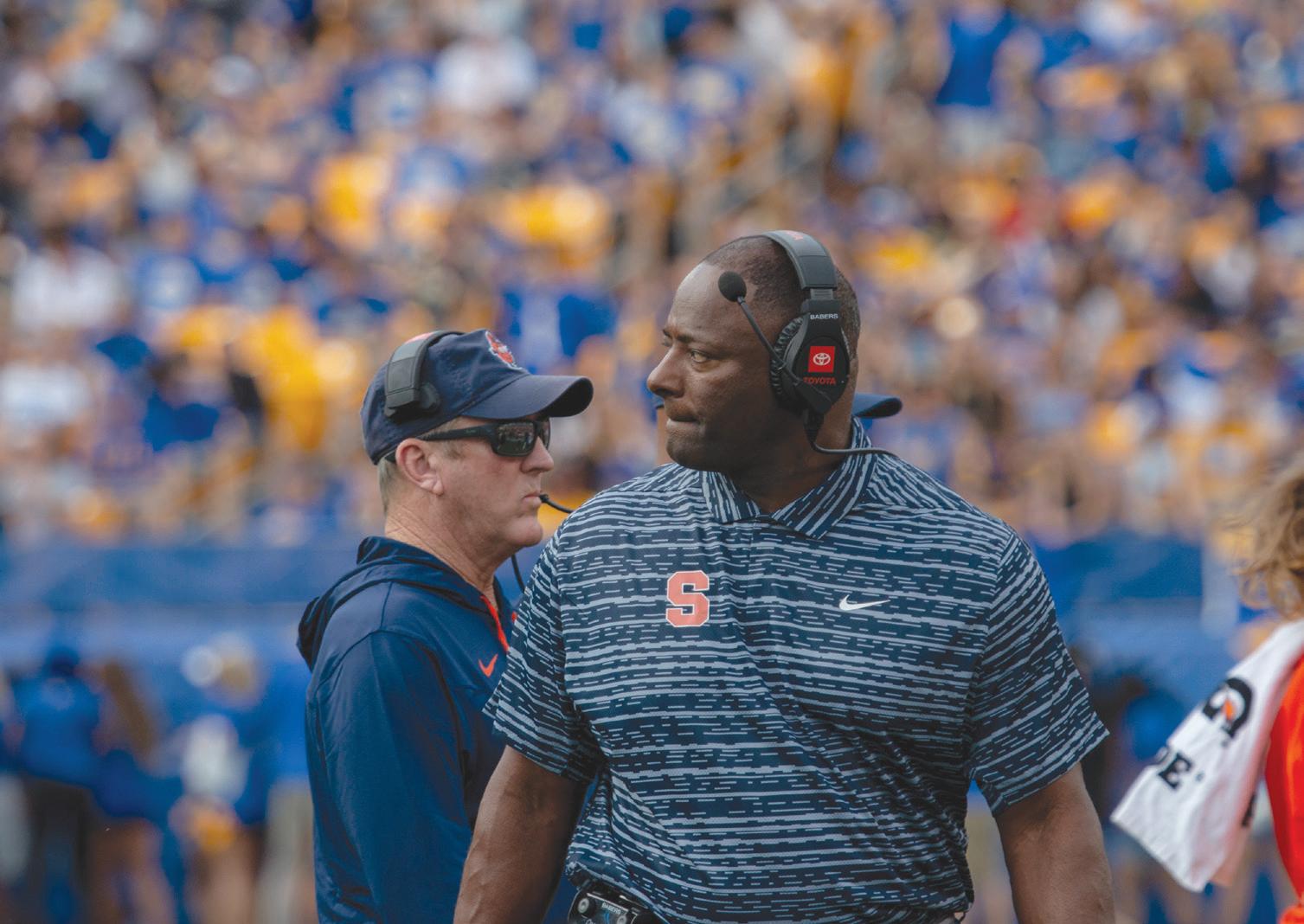
1 minute read
Sober & social
from Feb. 2, 2023
By Sophie Szydlik asst. digital editor
As a sober college student, Ivonne Millan is tired of being asked “why.” It seems that question — dripping with judgment and scrutiny — always overshadows her simply because when she’s offered an alcoholic drink, she declines.
Advertisement
While at Syracuse, she’s sought social communities that accept her regardless of her decision to be sober. But that has been no easy feat.
“It’s challenging if the whole night, you’re going to be questioned about a single decision,” said Millian, a junior studying psychology. “It makes it impossible to feel like you’re welcomed and accepted the way you are.” beyond the hill
Millan describes herself as one of few students at SU choosing to abstain from drinking and using other substances. Being sober can be an isolating experience, since many social interactions involve drinking and partying, she said.
With a history of alcoholism in her family, Millan decided when she was young she wasn’t going to drink and has remained steadfast in her commitment.
Dr. Brian Johnson, a professor emeritus of Psychiatry and Behavioral Studies at Upstate Medical University, said this human urge to ask ‘why’ is reflective of a larger phenomenon in addiction medicine — mass denial.
In addition to making it difficult for people to rationalize sobriety, Johnson said mass denial prevents those struggling with a substance to recognize they need help.
“There are basically two categories of people — people who drink recreationally and people who have alcoholism,” Johnson said. “But most people don’t realize the true definition of alcoholism, which is ‘repeated harm from drinking.’ Just those four words.”
Suddenly, it seemed that everyone Millian met only wanted to hang out in the context of drinking, and when she explained that she didn’t drink, she was judged. She felt forced to decline invitations and felt isolated from the rest of her peers.
“Coming here was a shock. Every kind of social interaction or opportunity to meet and connect with other people had to involve drinking.” Millan said. “It was a difficult topic, especially talking about it with my peers and how I wasn’t comfortable doing it. So I just wouldn’t be social.” see sober page 7









